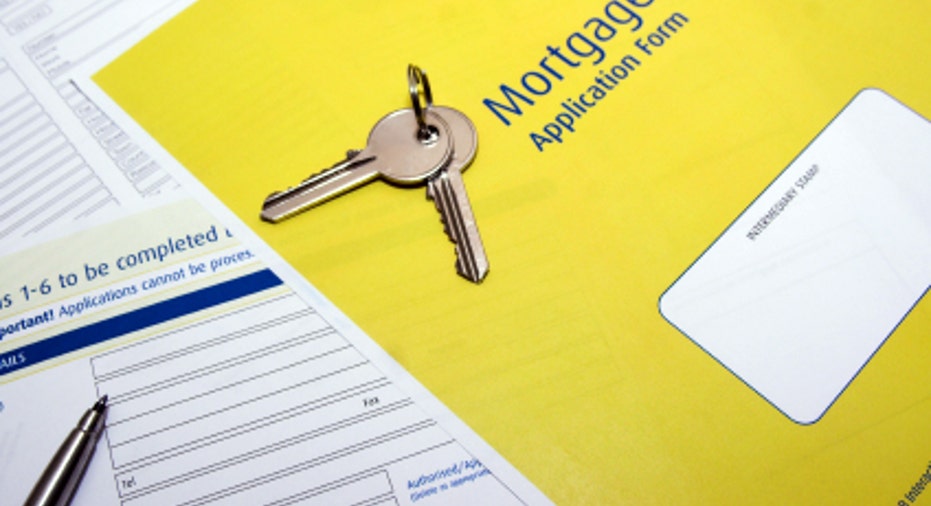Hunting Down a Home Loan? Here is What Banks Want To See

Looking for a home loan? Experts say now is the time to buy a home if you can afford it thanks to record-low interest rates and the average 30-year-fixed mortgage currently at around 4.5%.
But there’s a flip side. Banks and lenders have been notoriously stingy with credit during the Great Recession. In fact, studies show that home loans are tougher to get than ever. A Capital Economics study shows that a “substantial” majority of banking industry executives say that mortgage loans will remain “tighter than customary” for the next few years.
To get a home loan these days, you have to stand out in a crowd, and give banks no reason to turn you down.
Banks have very complex rules and under writing systems to approve a loan--and I should know. Prior to founding CreditSesame.com, I helped banks build and improve pricing and credit decision systems and learned that despite the complexity, there are several simple factors that determine whether you get a “thumbs up” or a “thumbs down” on your home mortgage.
So, whether you are looking for your first mortgage or refinancing to lower your payments, here are five things you can do to better your chances of getting a home loan.
Don’t let your mortgage payment exceed one-third of your monthly income. You know the old saying about two certainties in life--death and taxes? Well, add income to the list, if you’re going to get a home mortgage. Most bank formulas for home loan approvals require that you have not only any income, but a sufficient one. Figure about one-third of your monthly income toward a mortgage. Anything more and the bank’s formula starts working against you.
Make sure your credit score is 680 or higher. In the mortgage banking game, credit is as much a commodity as gold bullion. The more of it you have, the better off you are. More and more people are becoming aware and want to know their credit score. If you can post a credit score of 680 or above, which tells banks that you have a good history of managing your debt and paying your bills on time, then you’re probably an acceptable credit risk. But if not, don’t expect to get a home loan.
Come prepared with your entire debt/credit portfolio.Yes, you’re only looking for a bank mortgage, but lenders will look at your entire debt picture before deciding to fork over a loan. Banks will study your credit card that you used to charge that $35 haircut, just as thoroughly as they’ll comb over your $15,000 new car loan. Since you can’t hide debt from banks, you might as well give them the best possible picture to look at.
Bring a down payment of at least 20%. Back when credit was loose, housing values always rose, and loans were the low-hanging fruit of the consumer finance garden, banks didn’t give too much credence to how much money they’d lend to you. Brother, are those days over. Now banks have put on the breaks, and put strict limits on how much they’ll loan you. That means you’ll have to come up with some decent equity of your own; the sweet spot is 20% or more of the entire home value. While with less equity you may still be able to get a loan, the odds are against you. A good rule of thumb: the more equity you put on the table, the higher your odds of grabbing that home loan.
Choose a good location. Banks are more likely to grant a loan to applicants looking to buy a single-family home and they’ll only grant that loan after a full appraisal of your new home. So, make sure you know the rules of the road: the condition of the property and location matter a lot. Some lenders now have a list of declining market areas and are less likely to loan money at their best rate to borrowers who want to live in those perceived risky areas.
Remember, the new mortgage loan landscape depends on one true thing – how much risk banks are willing to absorb before granting you a loan. These days, lenders are taking no chances – so you have to increase your chances before you’ll get that home loan.
But if you take the five steps above, you’re the kind of borrower that banks will appreciate – and better yet, loan money to.
Adrian Nazari is CEO and founder of Credit Sesame. Previously, he was the founder and CEO of Financial Crossing Inc., an organization consisting of financial industry, technology, and academic experts and advisors dedicated to the development of next generations of “Liabilities Management” and advisory solutions for financial services sector. He pioneered the emerging industry of Liabilities Management and was founder and CEO of FinancialCircuit where he brought first of a kind mortgage and liability management solutions and business processes to the lending and financial advisory market before it was acquired by Linsco Private Ledger in 2004.Mr. Nazari has a Masters in Business Management from Stanford Graduate School of Business where he was a Sloan fellow.



















